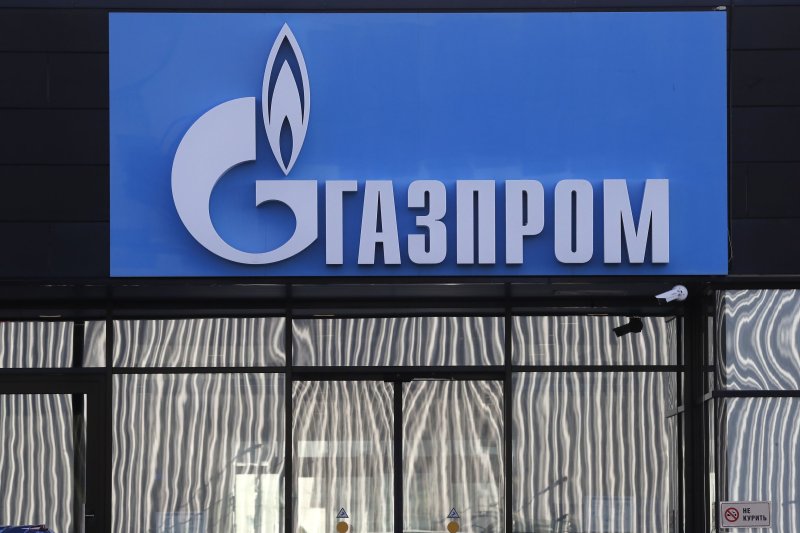A Gazprom office in St. Petersburg, Russia. Danish authorities reported that leaks from the company's Nord Stream natural gas network have stopped. Photo by Anatoly Maltsev/EPA-EFE
Oct. 3 (UPI) -- The Danish government reported stable pressure on the Nord Stream natural gas pipeline system, a reading that indicates the leaks uncovered last week have stopped.
"The Nord Stream AG company has informed the Danish Energy Agency that a stable pressure now appears to have been achieved on the two Nord Stream 1 pipelines," the agency said Sunday from its Twitter account.
Nord Stream AG is the operating company. It's controlled by Russian energy giant Gazprom, alongside minority Dutch, French and German partners.
The system consists of two sets of twin pipeline systems, dubbed Nord Stream 1 and Nord Stream 2. Both start on the western coast of Russia and extend through the Baltic Sea before making landfall in Germany.
Various regional maritime authorities reported last week that detonations on the seafloor likely triggered several ruptures on the network. Western powers claim the detonations were the result of Russian sabotage, though the Kremlin denied it was behind an attack on its own infrastructure.
Pipeline leaks of the potent greenhouse gas methane created a sea disturbance of around 0.62 miles in diameter. Denmark last week issued a navigational warning and set a prohibitive zone within 5 nautical miles of the section of the pipeline, though it's unclear if those travel restrictions remain in place.
The pipeline system was not pumping natural gas at the time of the incidents last week, though it was still filled. The New York Times suggested that water pressure was enough to stop any more gas from leaking to the surface.
The network was designed to carry Russian natural gas to Europe, though its long been a source of Western concern because it gives the Kremlin an exceptionally tight grip on the region, its economy and its energy sector. Those concerns became even more pronounced with the start of the war in Ukraine in late February.
The operating company, meanwhile, said it mobilized all of the necessary resources to survey the damage to the system.
"Currently, it is not possible to estimate a time frame for restoring the gas transport infrastructure," it said. "The causes of the incident will be clarified as a result of the investigation."















